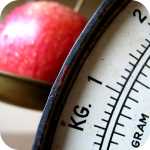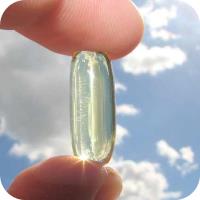 According to research, 8 out of 10 people say they have a healthy diet. However, when the study actually monitored what they ate it revealed that the reverse was true, and in reality only 2 out of 10 people ate healthy foods on a regular basis. If you don’t have a regular healthy diet, then you may want to consider taking fertility supplements for women.
According to research, 8 out of 10 people say they have a healthy diet. However, when the study actually monitored what they ate it revealed that the reverse was true, and in reality only 2 out of 10 people ate healthy foods on a regular basis. If you don’t have a regular healthy diet, then you may want to consider taking fertility supplements for women.
There are various different vitamins which have been shown to improve your chances of conception and which are important in maintaining a healthy pregnancy. These vitamins are found naturally within foods, so if you eat a healthy, balanced and varied diet, you are likely to be getting adequate amounts of these fertility vitamins. However, the recommended advice for women is still to take supplements in addition to a healthy diet whilst trying to conceive and for the first three months of pregnancy.
There are numerous fertility supplements on the market aimed at women who are wanting to boost their chances of getting pregnant (there are also numerous fertility supplements for men, though men need a different balance of fertility vitamins to women). In fact, because there are so many to choose from, the choice can be often be confusing and more than a little overwhelming. The actual brand that you choose is not important as long as it is targeted at women who are trying for a baby or who are pregnant.
My Diet Is Good; So Do I Have to Take Fertility Vitamins?
If you are part of the 20% of the population that eats a healthy diet all of the time (8 out of 10 people say they have a healthy diet, while in reality only 2 in 10 actually do), I still recommend you take folic acid and vitamin D supplements because of their importance for fertility and a healthy pregnancy.
For those of you that let your diet slip from time to time (myself included), in addition to folic acid, you may also want to consider taking additional fertility vitamins to ensure you have everything you need.
I Already Take a Multivitamin; Do I Need to Change?
The answer depends on the contents of your multivitamin, as not all multivitamins are the same. You need to check that the multivitamin does not contain too much vitamin A, which can cause the baby to have developmental problems when you do get pregnant. The recommended daily allowance for Vitamin A when trying for a baby is 770mcg (or 2565 IU).
What Vitamins Are Involved in Female Fertility?
The following is a list of the vitamins that are important for female fertility. I go into more detail about each of these below and you can click on a vitamin in the list to jump to that section.
• Folic Acid
• Vitamin D
• Vitamin B6
• Vitamin C
• Vitamin E
• Iron
• Zinc
• Essential Fatty Acids (Omegas)
• Calcium
• Selenium
Folic Acid
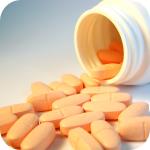
Folic acid is the synthetic version of the naturally occurring vitamin folate and is also known as vitamin B9.
Why Is Folic Acid Important?
As well as being shown to increase your chances of conception, folic acid is important in the development of the baby’s spine. Too little of this fertility vitamin can result in neural tube defects such as spina bifida. This is where the spine does not form correctly, leaving the spinal cord exposed and at risk of damage.
How Much Should I Take?
Women should take at least 400 micrograms of folic acid per day whilst trying for a baby and continue taking it for at least the first 3 months of pregnancy. However, women who are at higher risk of neural tube defects are advised to take a higher dose of 5000 micrograms per day. The risk factors for neural tube defects include:
• History of neural tube defect in a previous pregnancy, or where this runs in the family
• Medication for epilepsy
• Coeliac disease
• Diabetes – Type 1 or 2
• Thalassaemia trait or sickle cell anaemia
• Women with a BMI greater than 30
Folate Rich Vegetables
Broccoli, spinach, Brussel sprouts, asparagus, celery, carrots, peas
Other Folate Rich Foods
Citrus fruits, lentils, avocados, strawberries and fortified breakfast cereals
Vitamin D

Why Is Vitamin D Important?
Vitamin D is very important in the baby’s growth and skeletal development, and therefore it is important to have good stores throughout pregnancy and when breastfeeding.
How Much Should I Take?
A supplement of 10 micrograms per day (400 units) is advised for most women. However, women at greater risk of not having enough vitamin D are advised to take at least 1000 units per day. Women at higher risk of not having enough vitamin D include:
• Women of South Asian, African, Caribbean, or Middle Eastern family origin
• Women with limited exposure to sunlight (for example women who spend all day indoors or those who’s clothing completely covers them)
• Women with poor dietary intake of vitamin D
• Women with a BMI greater than 30
Vitamin D Rich Foods
Oily fish, egg yolks, meat, fortified margarine and cereals
Other Sources of Vitamin D
Vitamin D is also produced in the body by the action of sunlight upon the skin. However, people in countries with low levels of sunlight (which includes the UK) do not produce enough Vitamin D. In addition, a lot of foundation cosmetics now include sun block which further limits the amount of Vitamin D you produce, though this is a good thing for people in countries with high sun levels as it helps prevent sun spots and skin cancer.
Vitamin B6

Why Is Vitamin B6 Important?
Studies have shown that women who have a diet containing good levels of vitamin B6 (also known as pyridoxine) are less likely to experience nausea and vomiting (morning sickness) when pregnant.
How Much Should I Take?
The recommended daily allowance is 10mg, though women with a good diet are unlikely to need it as a supplement.
Be careful not to take too much of this fertility vitamin however as you can overdose. If you take more than 200mg a day of vitamin B6 you are at risk of developing peripheral neuropathy (damage to the nervous system), which can present as numbness or reduced feeling in your arms and legs. This is reversible on stopping the supplements in the majority of people.
Vitamin B6 Rich Foods
Sunflower seeds, pork, chicken, fish, bread, whole cereals, eggs, soya beans
Vitamin C
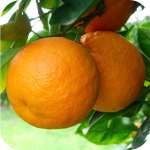
Why Is Vitamin C Important?
Vitamin C is an antioxidant which protects against damage to DNA. It also plays a role in regulating the menstrual cycle and normal ovulation. Studies have shown that women who are taking the ovulation stimulation medication Clomiphene (also known as Clomid), are more likely to ovulate and thus get pregnant when also taking a vitamin C supplement.
How Much Should I Take?
Vitamin C is not stored in the body, so daily supplement doses of 500mg per day are recommended.
It is possible to overdose on Vitamin C through taking mega doses of Vitamin supplements, so try not to exceed 1,000 mg per day in supplements (your intake from natural sources is unlikely to reach overdose levels). Overdosing on Vitamin C is unlikely to be harmful, but may cause diarrhea, nausea, vomiting, headaches, abdominal bloating and cramps.
Vitamin C Rich Foods
Broccoli, Peppers, Tomatoes, Oranges, Strawberries, Grapefruit
Smoking and Vitamin C
If you smoke, and I strongly recommend you don’t, then you will definitely want to take Vitamin C fertility supplements as it is one of the most effective nutrients you can take to reduce the bad effects of smoking. For more about how smoking can affect your chances of getting pregnant, please read the section Smoking and Fertility.
Vitamin E
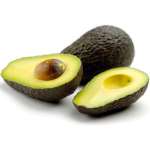
Why Is Vitamin E Important?
Vitamin E is yet another antioxidant. In studies on rats it has been shown that vitamin E deficiency reduces their fertility and increases the risk of miscarriage. It is also known that vitamin E helps to reduce the insulin resistance that is seen in PCOS. It is unlikely that you are not getting sufficient vitamin E in your diet, but you cannot overdose on this if you wanted to ensure that you have good stores.
How Much Should I Take?
If you choose to supplement your diet further, then the usual recommended daily dose is 500mg.
Vitamin E Rich Foods
Avocado, nuts, rice, asparagus, tomatoes
Iron

Why Is Iron Important?
Iron is important in making the haemoglobin in red blood cells, which is the component which carries the oxygen around your body and delivers it to the cells. During your menstrual cycle, your endometrium (mucous membrane that lines the inside of the uterus which the fertilized egg implants into) becomes rich with blood, so it is important to have a good supply of iron for it. When you become pregnant, your body makes extra blood, so it can keep the developing baby supplied with oxygen.
How Much Should I Take?
The recommended daily amount of iron is 27mg per day when trying for a baby and during pregnancy.
Iron Rich Foods
Red meat, green leafy vegetables
Zinc
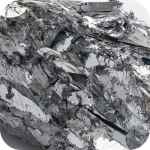
Why Is Zinc Important?
Zinc is an essential mineral that supports your fertility by contributing towards hormonal regulation, ovulation, DNA synthesis, protein synthesis and cell division. It is also needed for your body to make about 100 enzymes and is important in keeping a healthy immune system, so it also contributes to your general health.
How Much Should I Take?
The recommended daily allowance for women is 8mg. Your body does not store zinc, so you need to have a daily dosage to ensure you have the right levels.
Zinc Rich Meats
Steak, venison, lamb
Zinc Rich Vegetables
Spinach, peas, white mushrooms
Zinc Rich Seeds and Nuts
Pumpkin seeds, sesame seeds, cashews, pecans, almonds, walnuts, peanuts
Other Zinc Rich Foods
Wheat, oats, eggs, 85% dark chocolate
Essential Fatty Acids
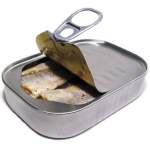
These are “good” fats and are made up of a group of three different unsaturated fats: omega 3, omega 6 and omega 9. Omega 3 and 6 are particularly important within the diet as they cannot be made by the body.
Why Are Essential Fatty Acids Important?
There is growing evidence that essential fatty acids have a wide range of fertility benefits:
• They regulate fertility hormones and help maintain a normal cycle
• They increase blood flow to the uterus
• They increase the cervical mucus around the time of ovulation
• They have a role in ovulation
• They reduce inflammation throughout the body, helping with general health
Fatty acids remain important during pregnancy as well, where they are involved in the development of the baby’s brain, heart and eyes.
How Much Should I Take
The current recommendation is that women who are trying for a baby or who are pregnant should be taking at least 650mg of fatty acids per day. This is equivalent to 2 portions of oily fish per week. EPA is one of the components of omega 3 fatty acid and is more useful than the other component DHA. Therefore, if you are looking for a supplement, try to find one with levels of EPA at 350mg or higher, compared to 300mg of DHA or higher.
Omega 3 Rich Foods
Flax oil, fish oil
Omega 6 Rich Foods
Borage oil
Omega 9 Rich Foods
Olive oil, fresh seeds and nuts, avocado, sunflower oil
Calcium
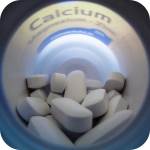
Why Is Calcium Important?
Calcium is vital in development of the baby’s bones, heart and blood vessels.
How Much Should I Take?
The recommended daily allowance is 1000mg per day. This quantity is difficult to pack into a multivitamin, so it is important that you are getting a good source of calcium outside of this as well.
Calcium Rich Dairy Products
Cheese, milk, yoghurt
Other Calcium Rich Foods
Sardines, spinach, kale, turnips, soy beans, fortified cereals, fortified orange juice
Selenium
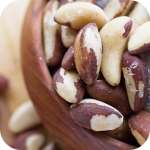
Why Is Selenium Important?
Selenium is an antioxidant which can protect against miscarriages or birth defects caused by DNA damage from free radicals. Studies have also indicated it helps promote healthy ovarian follicles, which develop and release the eggs.
How Much Should I Take?
In the UK, the recommended daily allowance is 60 micrograms (mcg) per day for women.
However, selenium is toxic in high doses, resulting in a condition known as selenosis, so do not take more than 400 micrograms per day (don’t get milligrams and micrograms mixed up as just 1 milligram is the equivalent of 1,000 micrograms).
Selenium Rich Foods
Brazil nuts, sunflower seeds, pork, wholemeal bread, tuna (cooked)
What Else Should I know About Fertility Supplements
According to studies in the UK, Herbal Food Supplements that claim to aid fertility can vary in quality. Fertility supplements that fall under the Traditional Herbal Registration (THR) or Medicines and Healthcare Products Regulatory Authority (MHRA) are best as these are regulated and contain what they claim on the label.
If your Herbal Food Supplement is registered under the Food Standards Agency (FSA), their manufacture is not regulated and they may not have the quantities of nutrients that the label claims (though they should not be detrimental your health).
Links to Popular Related Pages



